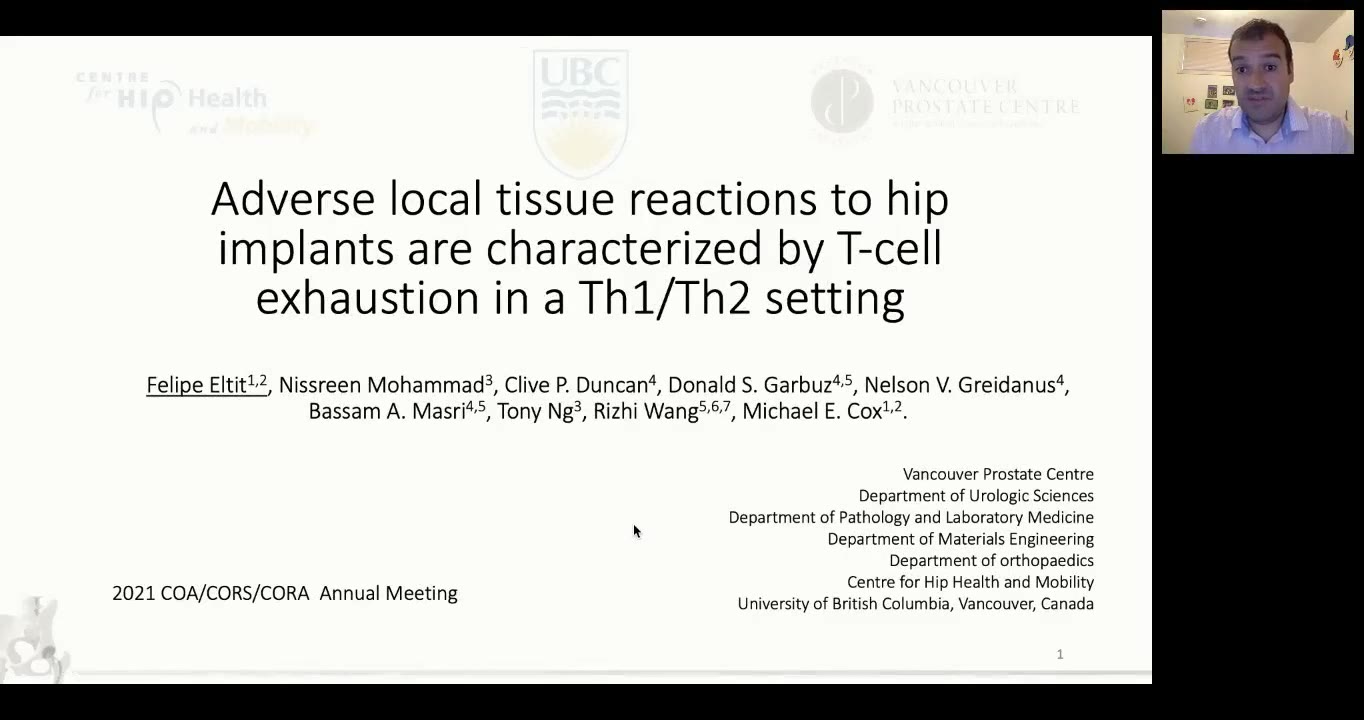Please login to view this media

- Talk
- 15/09/2021
- Canada
Adverse Local Tissue Reactions to Hip Implants Are Characterized by T-Cell Exhaustion in a Th1/Th2 Setting
Description
Felipe Eltit opens his presentation by welcoming the audience and introducing his research on the T-cell response in adverse local tissue reactions. He emphasizes the lack of conflict of interest and discusses how these reactions are increasingly noted in both metal on metal and metal on polyethylene hip implants, highlighting their characteristic features of inflammation, necrosis, and T-cell infiltrate in patient tissue samples. Eltit explains the isotype switching of T-cells based on the activation mechanism and poses questions about the cytokine responses associated with these tissue reactions.
The research involves a high throughput gene expression analysis of biopsies from patients, leading to the discovery that adverse local tissue reactions primarily consist of macrophage infiltration and exhausted T-cells, indicating chronic inflammation. The findings reveal a Th1 and Th2 predominant response rather than the expected Th17 response related to transplant rejection and autoimmune diseases.
He emphasizes that both metal on metal and metal on polyethylene implants elicit a similar T-cell response and highlights specific cytokines found in synovial fluid that are produced by T-cells. Eltit concludes with key messages regarding the similarity in adverse reactions, the potential for checkpoint inhibitors in treatment, and the significance of non-T-cell secreted cytokines as markers for implant failure, calling for further identification of the cell populations involved. The presentation ends with acknowledgments for collaborators, patients, and funding sources.